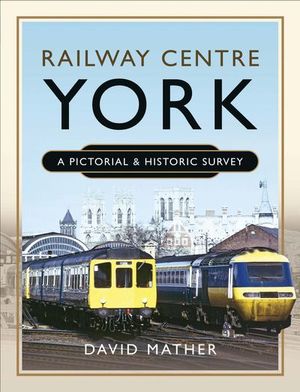Railway Centre York
The ancient city of York has been closely associated with railways since their conception and promotion by the ‘Railway King’, George Hudson. Its impressive station and engine sheds have played host to the elite of East Coast Main Line traction as well as a wide variety of ‘locals’. The major stabling point of York North shed, coded 50A was home to a diverse collection of steam locomotives as well as welcoming visiting engines from the wider network. As such it attracted interest from enthusiasts not only of steam power but later on as an important diesel depot, finally closing but later to be reborn as the National Railway Museum. Constructed in 1877 it was the largest railway station in the world. Legendary expresses have called at the platforms under the imposing curved glass and iron roof, now a Grade II* listed building. Today’s ‘flyers’ race between London and Edinburgh at speeds unheard of in steam days while cross-country services also bring visitors keen to explore York’s historic and cultural heritage. Yet the sight and sound of steam traction is still a major attraction in this modern era, with crowds flocking to see preserved locomotives at the head of the trains which regularly grace these famous tracks. David Mather has brought together a collection of his images which represents York’s railway heritage from its earliest days through to the present and which shows the city to be still justified in claiming the title ‘Railway Centre’.
BUY NOW FROM
COMMUNITY REVIEWS

